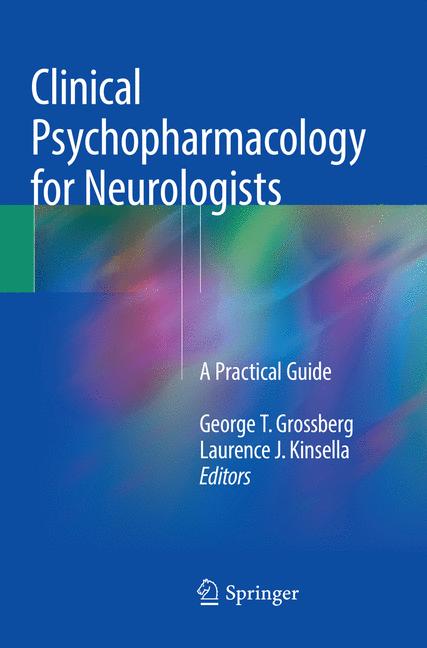This book provides neurologists with a basic knowledge of psychiatric medications. It begins with general principles of psychopharmacology and the frequency of psychiatric illness in neurology patients. It goes on to cover psychoactive drugs in the elderly and treating behavioral symptoms of dementia. There is a special emphasis on drug-drug and drug-diet interactions that may be seen in clinical practice. Neurologists, residents, neuropsychiatrists, neuropsychologists and psychiatrists in training will find this practical guide invaluable in numerous clinical settings.
1. Psychopharmacology for Neurologists
2. General Principles of Psychopharmacology
3. Special Considerations for the Elderly
4. Antidepressants
5. Anxiolytics
6. Sedatives and Hypnotics
7. Treating the Behavioral Symptoms of Dementia
8. Antipsychotics
9. Cognitive Enhancers
10. Mood Stabilizers, Anticonvulsants, and Anti-agitants
11. Drug-Dietary Interactions: Over-the-Counter Medications, Herbs and Dietary Supplements
“The book is clearly written with illustrative case studies, so that it should be accessible to residents and general neurologists. … This relatively slim volume does a good job of presenting the complexity of addressing behavioral, emotional, and cognitive disorders that coexist with many different neurological diseases.” (Lawrence W. Brown, Doody’s Book Review, November, 2018)
George T. Grossberg, MD
Samuel W. Fordyce Professor
Director, Geriatric Psychiatry
Department of Psychiatry & Behavioral Neuroscience
Saint Louis University School of Medicine
St. Louis, MO, USA
Laurence Kinsella, MD
Adjunct Professor of Neurology
SSM St. Louis University
Co-Director, Neurology
SSM Neuroscience Institute
St. Louis, MO, USA
This book provides neurologists with a basic knowledge of psychiatric medications. It begins with general principles of psychopharmacology and the frequency of psychiatric illness in neurology patients. It goes on to cover psychoactive drugs in the elderly and treating behavioral symptoms of dementia. There is a special emphasis on drug-drug and drug-diet interactions that may be seen in clinical practice. Neurologists, residents, neuropsychiatrists, neuropsychologists and psychiatrists in training will find this practical guide invaluable in numerous clinical settings.
Provides neurologists with basic knowledge about psychiatric medications
Covers prescribing concerns specific to neurologists
Features relevant clinical cases and scenarios




